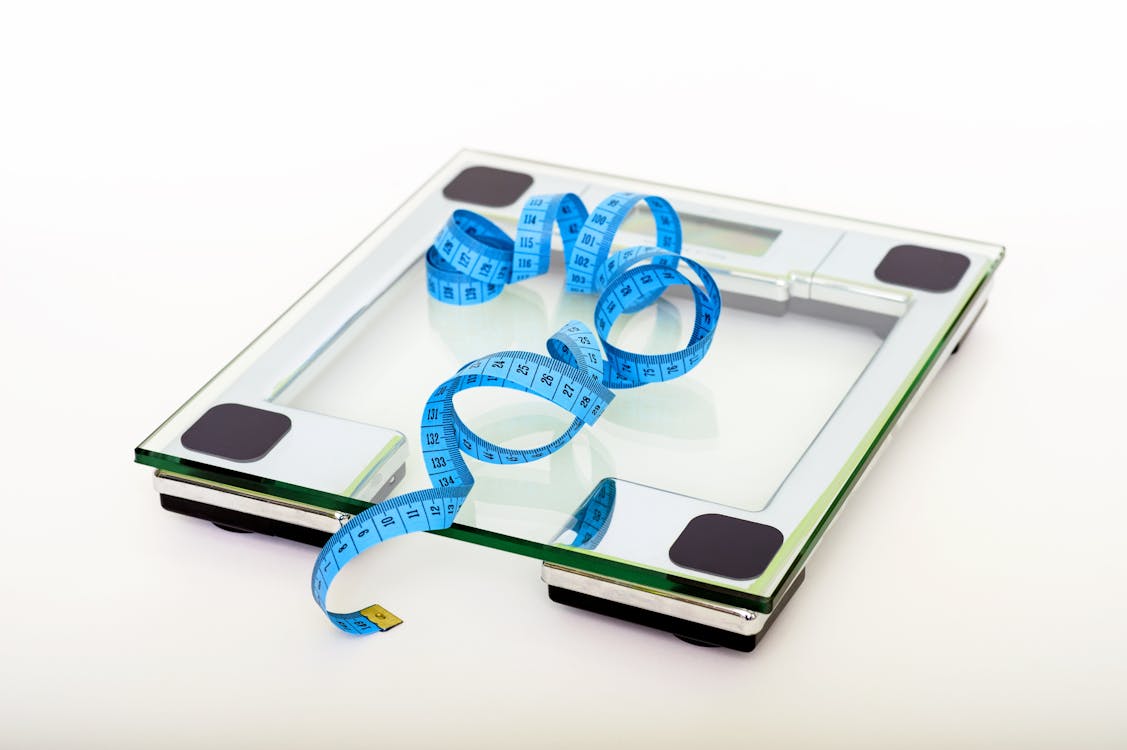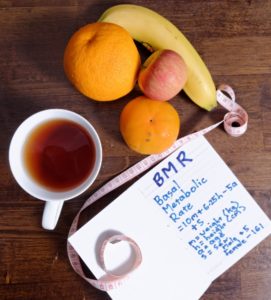- PhentermineLearn more about phentermine and how to get the most from your weight loss journey.
- ResourcesAdditional information and tools to help you make the most of your effort.
- AlternativesLearn more about the most popular weight loss medications and science-backed supplements
How Long Does It Take To Get Into Ketosis? Here Are 13 Signs To Look Out For
Published on December 12, 2024

The keto diet is your golden ticket to shedding those extra pounds and amping up your health in a major way. Dive into a world of fatty foods while saying bye to carbs, all to crank up your blood’s ketone levels. This magic switch changes how your body powers up, unleashing a world of benefits for your health.
One of the biggest questions is how long does it take to get into ketosis. In this article, we take a closer look at signs that you have appropriate blood ketone levels.

What is Ketosis?
Ketosis is a process wherein the body burns fats instead of carbohydrates. This metabolic process happens when there are insufficient carbohydrates in the body. The liver then produces ketones, which is known to burn more fats in the body, due to the depletion of glycogen stores. In turn, the ketone bodies induce ketosis.
This type of high fat diet is linked to numerous health benefits. You essentially have a low carb intake, while focusing more on healthy fats. These healthy fats become the primary source of energy for your body.
The keto diet aims to promote ketosis.
Keto dieting is used for a large number of reasons. Most people who follow a keto dieting program want to reduce body fat content. Excess fat in the body is harmful – and many modern diets have too many carbs. This can make the process of weight loss harder.
This particular diet increase blood ketone levels, which puts the body into a fat burning state.
Some people combine this strategy with intermittent fasting. The use of intermittent fasting further helps with fat burning and reducing body fat percentage.
Studies On Ketosis
A study has shown that people who follow a keto diet consume food with less than 50 grams of carbs and about 1.5 grams of protein (1). This enables your body to undergo various biological adaptations, which will most likely affect your body, either positively or negatively.
When you start the diet, your liver produces high levels of ketone bodies, which can provide energy to your brain. But, it is hard to determine if you are in ketosis or not. Some people don’t even know when they are in ketosis. Thus, asking how long does it take to get into ketosis becomes an important factor.
Don’t worry, and we will help you identify the signs when you’re in ketosis.
13 Signs When You’re In Ketosis
While asking how long does it take to get into ketosis is important, you should note that the specific period differs among people who follow a keto diet. Once you get into ketosis, you will start to experience a few side effects.
This happens due to the lower carbohydrate intake, which is replaced by a higher intake of fatty acids and healthy fats. Many of these side-effects only last for a few days. When you follow a keto diet and you are not sure if the high-fat diet has you in ketosis yet, then look out for the signs we address below.
Increased Ketones
One of the most common symptoms that you are in ketosis is when you have ketones in your blood. Your ketone levels can be determined by various tests, such as blood tests, breath tests, or urine tests.
This is due to the fact that the increased fat intake causes your liver to produce ketones.
A specialized kit is also available to test your ketone levels at home. A person who is in ketosis has blood ketone levels from 0.5 to 3 millimoles per liter.
The amount of beta-hydroxybutyrate, which is the main ketones in your blood, determines whether you are in ketosis or not.
The most accurate way to measure ketones is through blood tests, according to various studies. But the only drawback for this is that it requires blood to draw from your fingers (2). This type of blood ketone meter can be useful when tracking ketones in your body.
Weight loss

Just like any other diets which requires you to consume low carbohydrates, the Ketonic diet is also effective in losing weight. That is the reason why this is used as a means for shedding off pounds. Studies show that this kind of diet has both short and long term effects.
According to a 2013 study, the diet is effective in the long-term compared to those diets which involve the consumption of foods low in fats (3). People who follow this diet can experience weight loss in just a few days. But it is worth noting that reduction only involves water weight. Fat loss may be experienced after a few weeks. While weight loss is possible, it is important to note that you will still need to exercise if you want to burn fat. Your diet should also focus on a calorie deficit if weight loss is your goal.
Thirst
Since ketosis can make you lose weight in just a few days, you will feel thirstier than before. This is because your water weight is reduced in the first few days. But then, this is not good for you as it can lead to electrolyte imbalance and dehydration. High levels of ketones might cause major complications.
Athletes, in this case, are at a higher risk of dehydration, which can eventually lead to kidney stones (4). That is the reason why it is recommended for you to drink plenty of water if you are following a Ketonic diet to avoid dehydration. If symptoms persist, such as if you have dark-colored urine and you experience extreme thirst, consult your doctor.
When the thirst develops, make sure you implement an appropriate counteraction. Focus on maintaining both hydration and electrolyte balance. Keto dieters need to understand that serious side-effects can occur when they become dehydrated. The risk of dehydration is higher when the body just starts producing ketones.
Muscle spasms and cramps
Did you know that electrolyte imbalance and dehydration can also cause muscle cramps? Electrolytes are substances responsible for carrying signals between the cells. If these substances are imbalanced, the electrical messages will be disrupted, which can then cause muscle spasms and contractions.
If you are following a ketogenic diet, make sure that the food you eat has enough electrolytes to avoid muscle spasms, cramps, and other symptoms of imbalances. Electrolytes, including potassium, sodium, magnesium, and calcium can be taken if you have a balanced diet (5). Ketone salts are sometimes used, as they combine a variety of these electrolytes.
Headaches

One of the most common effects of a ketogenic diet is a headache. This is because this diet involves the low consumption of carbohydrates, including sugar. Aside from that, electrolyte imbalance and dehydration also cause a headache.
Headaches usually last a week. But some people experience headaches for a longer period. If the pain persists, it is best to seek help from your doctor. According to several studies, this diet can help in treating cluster headaches and migraines.
A study has shown that the ketogenic diet can help improve chronic and episodic migraines (6). On the other hand, another study suggests that this diet can help in treating cluster headaches (7).
Short-term fatigue
If you are in ketosis, you will most likely experience fatigue and weakness. But this effect is just natural and comes with long-term benefits. Your body will eventually adapt to the new system, wherein you consume lesser carbs.
It may be hard at first, but remember that change doesn’t happen overnight. You will experience full ketosis after a week or a month, depending on how your body will adjust to the diet. The best remedy is to take electrolyte supplements (8).
This can help in replacing the electrolytes lost with weight reduction. The diet allows you to lose water weight, as well as eliminate unwanted foods from your body, including processed foods containing added salt.
Electrolytes are not the only factor that may be behind the fatigue. Blood glucose levels tend to decline as your body adapts to the higher fat intake. When your blood glucose levels are low, you may experience fatigue.
Digestive issues
If you shift to a ketogenic diet, the type of food you eat will change. A major change in diet can probably lead to digestive issues as your body is getting used to this. Problems such as diarrhea and constipation are just a few of the side effects of the diet. Thus, look for changes in your metabolic state.
But these issues will improve after you passed the transition stage. You should be mindful of the foods you eat, which can affect your digestive system. You should also eat fruits and vegetables that are rich in fiber but low in calories.
Sleep problems

Insomnia is one of the common problems encountered by new dieters. This is because of the drastic reduction of carbs from your diet. But this issue will most likely improve in just a few weeks. Some people who follow this diet claim that they have better sleep after they already adapt to this diet.
Increased energy and focus
It is normal to feel sick, tired, and have brain fog if you start a low-carb diet. This situation is usually referred to as keto flu or low-carb flu. But just like any other symptoms, keto flu will only last shortly as your body is adjusting to the change.
The ketogenic diet involves the burning of fats for fuel. That is why your body should adapt to this change.
If you are in ketosis, your brain also burns ketones, not glucose. But this metabolic process will work a few days or weeks properly from the time you start the diet.
Ketones are extremely important as it serves as fuel for your brain. It is also shown to treat brain conditions and diseases, including memory loss and concussion (9). This is the reason why people who are in ketosis experience improved brain function (10).
Furthermore, a low-carb diet can positively affect your blood sugar levels (11). If you reduce your carb intake, you will most likely stabilize and control your blood sugar. This may also help in improving brain function, as well as focus.
Suppressed appetite
People who are in ketosis usually experience appetite suppression. A study has shown that a ketogenic diet can affect your hunger hormones, which significantly reduce hunger and appetite (12). If you feel full most of the time, you may be in ketosis. Well, the ketones are also responsible for sending signals to your brain, which may help you reduce your appetite.
Increased ketones in urine or breath
One of the ways to measure the level of ketones in your blood is through a breath analyzer. This test could monitor acetone, which is most likely present in your bloodstream if you are in ketosis (13). The breath analyzer could identify whether or not you are in nutritional ketosis because more acetone leaves in your body.
Although a breath analyzer is less accurate than blood tests to measure ketone levels in your blood, it is shown to be fairly accurate.
Another technique to measure the same would be through your urine using special indicator strips. Although these strips are not considered very reliable, a urine test can be a cheap and quick method.
Bad breath
People who are in ketosis usually experience bad breath. But this side effect is just common and people with similar diets, like the Atkins diet, also experience the same. The culprit for this is the high levels of ketone in your blood. As the ketone increases, more acetone is released by your body through your breath and urine. Other ketones, such as acetophenone and benzophenone, may also lead to bad breath.
Although bad breath is not favorable, it is an indication that your diet is working (14). The best thing that you can do is to brush your teeth several times a day. Or if it is not possible, then you can use sugar-free gum.
Decrease in performance
We already discussed that reducing your carb intake can lead to tiredness. If you are tired, your physical activities will most likely be decreased. This is because the glycogen stored in your muscles is reduced, which supposedly serves as a fuel to perform high-intensity exercises.
However, this problem is just momentary. Your energy will be back to normal after a few weeks when your body is already used to your diet. It was even shown that a ketogenic diet could help you improve ultra-endurance events and sports.
A study shows that people who opt for this type of diet burned 230 percent more fats compared to those who do not follow the said diet (15). This diet may not be initially favorable to elite athletes, but as your body adapts to fat burning, you will most likely improve in recreational sports and exercises (16).
Conclusion
It’s hard to provide a fixed answer for a question like how long does it take to get into ketosis. There is no shortcut to losing weight. You should know that each diet has its pros and cons. Just like any other diet, the ketogenic diet also comes with major drawbacks. Although some of the signs, if you have ketosis, are not favorable, most of these are just temporary and can be remedied. Always take note of more serious side effects. Whether your goal is weight loss, to burn fat faster, or to experience other benefits of ketosis – safety should be your main priority.
References
- https://www.ncbi.nlm.nih.gov/pmc/articles/PMC5828461/
- https://www.ncbi.nlm.nih.gov/pubmed/11553201
- https://www.ncbi.nlm.nih.gov/pubmed/23651522
- https://www.medicalnewstoday.com/articles/154193.php
- https://www.medicalnewstoday.com/articles/323544.php
- https://www.ncbi.nlm.nih.gov/pubmed/28527061
- https://www.ncbi.nlm.nih.gov/pmc/articles/PMC5816269/
- https://www.healthline.com/nutrition/10-signs-and-symptoms-of-ketosis#section7
- https://www.ncbi.nlm.nih.gov/pubmed/18625458
- https://www.ncbi.nlm.nih.gov/pubmed/18804129
- https://www.healthline.com/nutrition/low-carb-ketogenic-diet-brain
- https://www.ncbi.nlm.nih.gov/pubmed/23632752
- https://www.ncbi.nlm.nih.gov/pubmed/12081817
- https://www.medicalnewstoday.com/articles/166636.php
- https://www.ncbi.nlm.nih.gov/pubmed/26892521
- https://www.ncbi.nlm.nih.gov/pubmed/25275931


